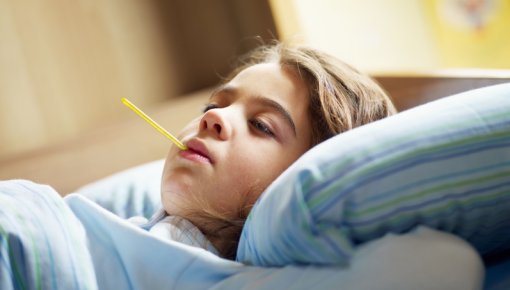De la Cruz-Mena JE, Veroniki AA, Acosta-Reyes J et al. Short-term Dual Therapy or Mono Therapy With Acetaminophen and Ibuprofen for Fever: A Network Meta-Analysis. Pediatrics 2024; 154(4): e2023065390.
Deutsche Gesellschaft für Kinder- und Jugendmedizin (DGKJ). S3-Leitlinie Fiebermanagement bei Kindern und Jugendlichen. AWMF register no.: 027-074. 2025.
Lim J, Kim J, Moon B et al. Tepid massage for febrile children: A systematic review and meta-analysis. Int J Nurs Pract 2018; 24(5): e12649.
Meremikwu MM, Oyo-Ita A. Paracetamol for treating fever in children. Cochrane Database Syst Rev 2002; (2): CD003676.
Meremikwu MM, Oyo-Ita A. Physical methods versus drug placebo or no treatment for managing fever in children. Cochrane Database Syst Rev 2003; (2): CD004264.
Offringa M, Newton R, Nevitt SJ et al. Prophylactic drug management for febrile seizures in children. Cochrane Database Syst Rev 2021; (6): CD003031.
Pereira GL, Dagostini JM, Pizzol Tda S. Alternating antipyretics in the treatment of fever in children: a systematic review of randomized clinical trials. J Pediatr (Rio J) 2012; 88(4): 289-296.
Tan E, Braithwaite I, McKinlay CJ et al. Comparison of Acetaminophen (Paracetamol) With Ibuprofen for Treatment of Fever or Pain in Children Younger Than 2 Years: A Systematic Review and Meta-analysis. JAMA Network Open 2020; 3(10): e2022398.
Wong T, Stang AS, Ganshorn H et al. Combined and alternating paracetamol and ibuprofen therapy for febrile children. Cochrane Database Syst Rev 2013; (10): CD009572.
IQWiG health information is written with the aim of helping people understand the advantages and disadvantages of the main treatment options and health care services.
Because IQWiG is a German institute, some of the information provided here is specific to the German health care system. The suitability of any of the described options in an individual case can be determined by talking to a doctor. informedhealth.org can provide support for talks with doctors and other medical professionals, but cannot replace them. We do not offer individual consultations.
Our information is based on the results of good-quality studies. It is written by a team of health care professionals, scientists and editors, and reviewed by external experts. You can find a detailed description of how our health information is produced and updated in our methods.

